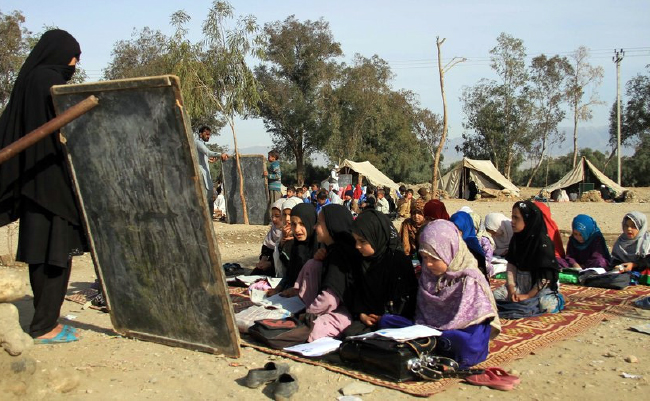The significant role of education in a society is beyond doubt. A country will have strong economic pillars and power for having standard educational system and qualified instructors. In modern world, science and technology are highly instrumental in the progress of a country. Knowledge beckons a society to humanity and has them respect the rights and liberty of a nation regardless of their race, color and caste. Violence and bloodshed have no room in social realm of knowledge.
However, there are many challenges in Afghanistan regarding education and schooling. A number of people are likely to take their desire for going to school to the grave with them due to one reason or another. Economic crisis is a strong obstacle for many students to go to school. For instance, child labor and forced marriage prevail in the country despite being contrary to national law and international instruments. Little wonder, no one likes to trouble their children; however, poverty and economic constraints force them to violate the law through making their children marry in early age or involve in backbreaking chores.
On the other hand, lack of schools and qualified teachers, mainly in villages, slows down progress in the field of education. I remember vividly, when I was teaching at a school in Daikundi province, that scores of students, including male and female, walked for long hours to get to their school. Meanwhile, the quality of education was really poor and there were hardly ever any teachers who could satiate the unquenchable thirst of students for knowledge.
Based on a recent report, only 199 schools out of 377 have buildings – 33 of them are mud schools built by the locals – in Daikundi province where 164,921 students are attending schools. So, 258 schools, which form 68 per cent, are without buildings and students are taught in open air or destroyed homes/stores. Many schools are behind the schedule for no buildings and right places for teaching. Lack of teachers seem to be a highly serious challenge in this province. A number of students have reportedly passed last year without being taught regularly or having any specific schedules. The report adds that currently 41 per cent of teachers have not been hired yet and totally about ten thousand teachers are needed to be hired. It also suggests that text books have not been distributed to students from the solar year of 1392 onward in this province and students buy the books. Similarly, lack of facilities such as enough chairs, tables, laboratories, and teaching materials and as well as drinking water compound the challenges.
To consider insecure provinces such as Helmand and Kunduz, girls’ schools are closed and they are particularly deprived of getting education. The radical ideology of warring factions have again marginalized them from social and cultural activities. This will lead to two horrible consequences: first, the girls will deem themselves inferior to men and lose their confidence. Secondly, they will not be able to be aware of their rights for being kept in dark by fundamental ideologues. In brief, the residents of insecure provinces will suffer not only from lack of facilities and qualified teachers but also from militancy.
In Moqor district of Ghazni province, where I lived for years, the girls’ schools are closed except for primary schools for girls. I do remember when a girl looked taller or older from the Taliban’s criteria, the Taliban ordered teachers not to let them attend schools anymore which was highly disappointing for them. They also checked text books of primary schools and ordered women’s pictures to be distorted by pen for having bare face/ not wearing burqa. Don’t you think that such issues will put ill effect on children’s minds? It will really pave the ground for radicalization, won’t it?
To cut it short, there are many obstacles before getting education both in secure and insecure provinces and girls are more vulnerable to these challenges. The second vulnerable group is those who suffer from poverty – who neither afford the cost of tuition nor being paid enough attention from the government. In case of raising their voice, it will fall on deaf ears.
The Constitution of Afghanistan states in article 6 as, “The state shall be obligated to create a prosperous and progressive society based on social justice, preservation of human dignity, protection of human rights, realization of democracy, attainment of national unity as well as equality between all peoples and tribes and balance development of all areas of the country.” Moreover, the heads of the National Unity Government (NUG) made mouth-watering promises for economic developments, providing public welfare, etc. during their presidential campaigns, but they could hardly put them into practice.
Home » Opinion » Barriers before School and Schooling
Barriers before School and Schooling
| Hujjatullah Zia

